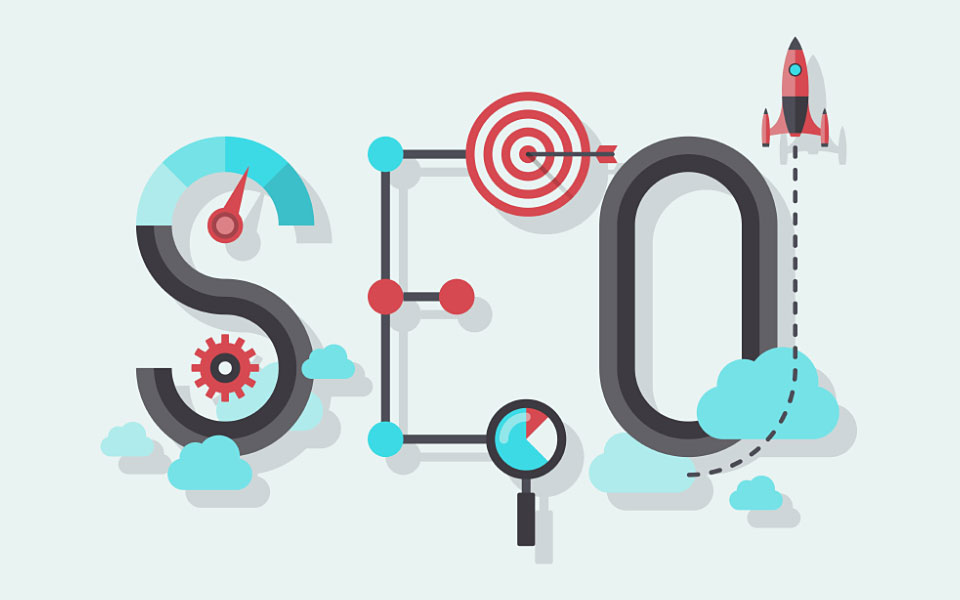Reasons Your Website is Not Ranking on Google SERP
Top ranking on search engines especially on the Google Search Engine Result Pages, SERPs, is a primary goal for every website. The higher your website ranking, the more traffic you get, and that has been found to correlate with your sales conversion. But achieving high rankings is not so easy and there are no easy ways to it. You just have to work hard following the rules and guidelines prescribed by Google and you will achieve your desired results.
In this post, we have outlined experience-based reasons your website ranking could suffer. Here are the top and pervasive reasons we have identified.
Further reading:
- Build Website Reputation and Authority with Social Media
- How to Boost WordPress Speed
- A Basic Guide to Website Designing for Search Engines
- How to Use Keywords in Website Content for SEO Gains
- 16 YouTube Features You Need to Know
Reasons Your Website is Not Ranking Well
1. Poor Hosting Service
Google is very interested in the experience and happiness of its users. Because poor hosting often results in service outages and slow-loading websites, Google will not want to rank such websites at the top in its search engine results pages. The point here is that Google is also interested in the quality of its search engines and does not want to rank poor-performing websites and content at the top of its search engine result pages.
In choosing your web host, you should be concerned about the uptime and the server speed. At Todhost, we understand and realize that customers may not always be able to achieve the best performance optimization for their websites especially when it comes to security and speed. We take extra steps to monitor server performance for websites that are performing below optimum and address the issues for security and performance. That way, we assure customers of server stability and support your efforts to rank well in search engines.
2. On-Page Optimization Factors
On-page factors are the things you can do on your website to improve its performance. This includes improving the website speed, writing quality meta tags, content, responsive designs, HTTP protocol and addressing duplicate content.
- Improve the Speed of Your Website
As much as you can, work to improve the speed performance of your website. Depending on the software that powers your website, we recommend tested plugins and extensions that improve the speed of the website.
Recommended WordPress plugins to Improve Loading time
1. W3 Total Cache
This plugin has been considered a must have as far a WordPress speed improvement is concerned. You will inevitably find W3 Total Cache in must have WP plugin lists. W3 cache imposes automatic cache control of database objects, posts, pages, content, etc. on your WordPress site. It improves server-side performance, reduces download times and provides smooth CDN integration for faster site speed.
2. EWWW Image Optimizer
This plugin is very useful for sites that have images in posts. It is also useful for other websites. One good side of this plugin is that it reduces image file size by compressing JPG & PNG files and converting high size formats into JPG, PNG. It performs lose-less image compression which will not reduce image quality and can optionally set images to lossy compression if image’s visual quality is of no much importance to your site.
3. Advanced Lazy Load
Images can be compressed to be lighter but that does not guarantee high speed if the images are much. A website can still be sluggish if they have dozens of images. Lazy load plugin is the WordPress mechanism to deal with this issue.
Advanced Lazy Load activates lazy load mode in WordPress that makes image load only when they are scrolled up in the visible area by the user. It means even if you have fifty images in your blog, only the ones in the visible area will load upon opening that page. The rest will load one by one as the user scrolls down the web page. This also saves user’s surfing data and makes your webpage’s loading speed superior.
4. WP-optimize
Database issues can cause slowness of websites. For some websites, the databases may not be huge but for sure there will be many redundant rows. This problem is adequately handled by WP-optimize. WP-optimize is a database optimization plugin that will automatically identify redundant i.e. useless entries in your database and make it sleeker by removing them. Lesser rows mean faster queries which mean faster site loading. Though the difference made by this improvement is very minimal, it is worth implementing it.
5. Leverage Browser Caching Ninja
Most modern browsers have the caching function that is not activated by default. The activation can be done through your website. By imposing browser caching, you can make browsers save smaller elements of websites and CSS in computer memory that will allow website load faster because only bigger items will need to load every time the site is reloaded. Leverage Browser Caching Ninja is the best-rated plugin for browser caching and it requires no configuration. Just install and it will start working.
6. Lazy Load for Videos
Similar to images in WordPress, videos can also be configured to load on user request only. Lazy Load For Videos will automatically identify videos in your post and replace them with a static thumbnail that will load video only when the user clicks upon thumbnail. This reduces loading time for pages having video elements.
7. GZip Ninja Speed Compression
WordPress developers use a lot of space during coding in order to keep the codes well-documented. This results in redundant memory usage that can be removed by GZip compression. GZip compression removes useless space in coding and makes CSS, HTML, etc. files smaller. This compression is so efficient that it reduces more than 50% file size on average. Coders, don’t worry though because this plugin will not modify the original files. It uses compressed versions of them. So in future if you need to modify the code, you can still do it.
While W3 Total Cache also does this, I recommend you to use this dedicated GZip compression plugin instead for better performance.
8. P3 Plugin Performance Profiler
This plugin, P3.e. Plugin Performance Profiler performs a check on your website and creates the detailed, comprehensible breakdown of plugin’s load time. This report enables you identify & replace the time-consuming plugins with the optimal ones.
9. Plugin Organizer
This plugin is used to keep other plugins neatly arranged. As you identify the heavy and lighter plugins with P3, you will be easily able to decide which plugin is more important for your site and which is the least one. With Plugin Organizer, you can make specific plugins load only on specific pages set their loading order manually.
How to Boost the Speed of a Joomla Website
Joomla is the second most popular content management system and next in our consideration. Based on different tests involving different versions of Joomla few conclusions had been drawn:
- The speed and performance of Joomla are significantly dependent on the choice of template, followed by addons components/modules/plugins. It is recommended you uninstall or deactivate all templates and extensions that are not in use. It’s no use keeping extensions that eventually turn outdated and can become a security problem for your website. The best approach to managing extensions and templates not in use is to uninstall them.
- The number of CSS images and Javascript (size) make the final blow to Joomla’s performance. Fortunately, modern or recent Joomla versions have significantly addressed this with very effective CSS and JS compression.
- Activation of the inbuilt Gzip and Cache system does speed up the Joomla site. This can be achieved with some tweaks to the global configuration setting and the activation of the default system cache in the plugin manager. Please note that we recommend using progressive caching in the global configuration setting in the Joomla backend.
- Cleaning up CSS codes can result in a highly boosted Joomla performance in terms of decreased HTTP requests and total page size. The smaller the file size, the faster the speed of your Joomla website.
- Compression and minification of CSS / JS files, similarly compression and optimization of pics/images is the key to speed up default Joomla.
- Write Fresh Content
Content is food for search engines. So, when you write fresh and quality content, you become attractive to search engines. Recent Google Algorithm updates have shown fresh content taking prominence and we recommend you write fresh content at least once a week to achieve good ranking performance.
Focus on long-form content. Writing short content of less than a thousand words could mean you have not given sufficient coverage on the subject matter. Our research shows the content of up to 2,000 words and above performs better in search engines.
- Write Keyword-Rich Meta Tags
Basically, you have to ensure good titles and descriptions for your pages and content. Although Google has said it does not use the title and description tags to rank websites, we have found that these tags still impact how Google understands your website. Keep titles within 50 characters and descriptions should be within 150 characters.
3. Build Links Ethically
The best way to build links is to write quality contents that are worthy of being linked to. The link also to other high-quality pages that are related to yours. Avoid buying links, in fact, run away from the temptation of buying links because Google will ultimately catch you and the consequences are never palatable.
4. Don’t Try to Game the System
This is related to the issues discussed above in respect of attempting to buy links to gain credibility in the eyes of Google and get higher ranks. The era when that worked is far gone. Any attempt to force Google to do anything in your favor can hurt you seriously. Just continue to put in your best, do your thing, and don’t worry about how much Google is impressed. Your website will certainly be rewarded for the good work.
5. Take Analytic Metrics Seriously
Analytics will guide you on how your content and pages are performing. Work to achieve good results for metrics like bounce rate, exit rate, dwell time, and site speed. Ensure that your website does not have errors. Use a custom error page to deal with 404 errors.
6. Ensure Your Website is Mobile Friendly
Google has become increasingly concerned about user experience. As more users turn to mobile devices to access the internet, mobile friendliness has become very important. Check your website for mobile usability issues in the Google search console. Google also has a tool for testing mobile friendliness.
7. Switch to https
Google now marks as unsecured, websites that do not use the HTTPS protocol. Google also devalues such websites. Switching to the HTTPS mode is therefore compulsory. Apart from the fact that Google loves it, visitors and customers also feel secure with websites that use SSL.
8. Be Patient
One of the factors we have seen to hurt rankings is frequently making changes with the hope of being ranked better for the inserted keywords. Frequent changes turn out to be counter-productive. You need to wait and watch to see how every improvement impacts ranking. After all, the ranking does not only depend on keyword-rich content. Build on the overall quality of your website and not just focus on key areas like page titles and descriptions.
However, you must craft good page titles and descriptions because they are mostly the first to catch the attention of users and do significantly affect click-through rates.
Last Words
Gaining high rankings in search engines is the product of hard work and patience. It is important that you respect the rules set by Google, do not try to game the system, and be patient to see how your efforts pay off.
What else have we missed, we know you’ll have some contributions to make to this list. Let’s have them in the comments.
editor's pick
latest video
news via inbox
Nulla turp dis cursus. Integer liberos euismod pretium faucibua



